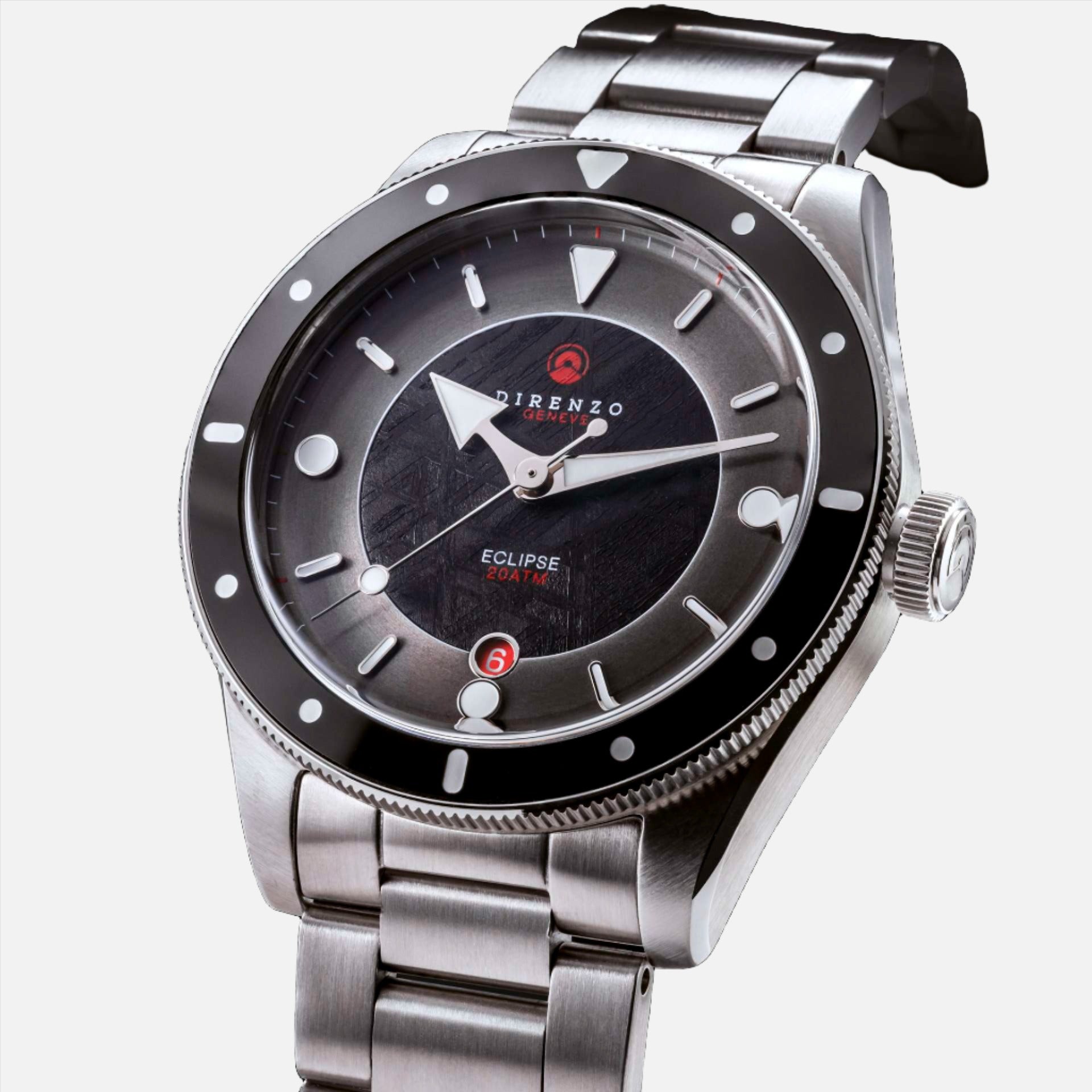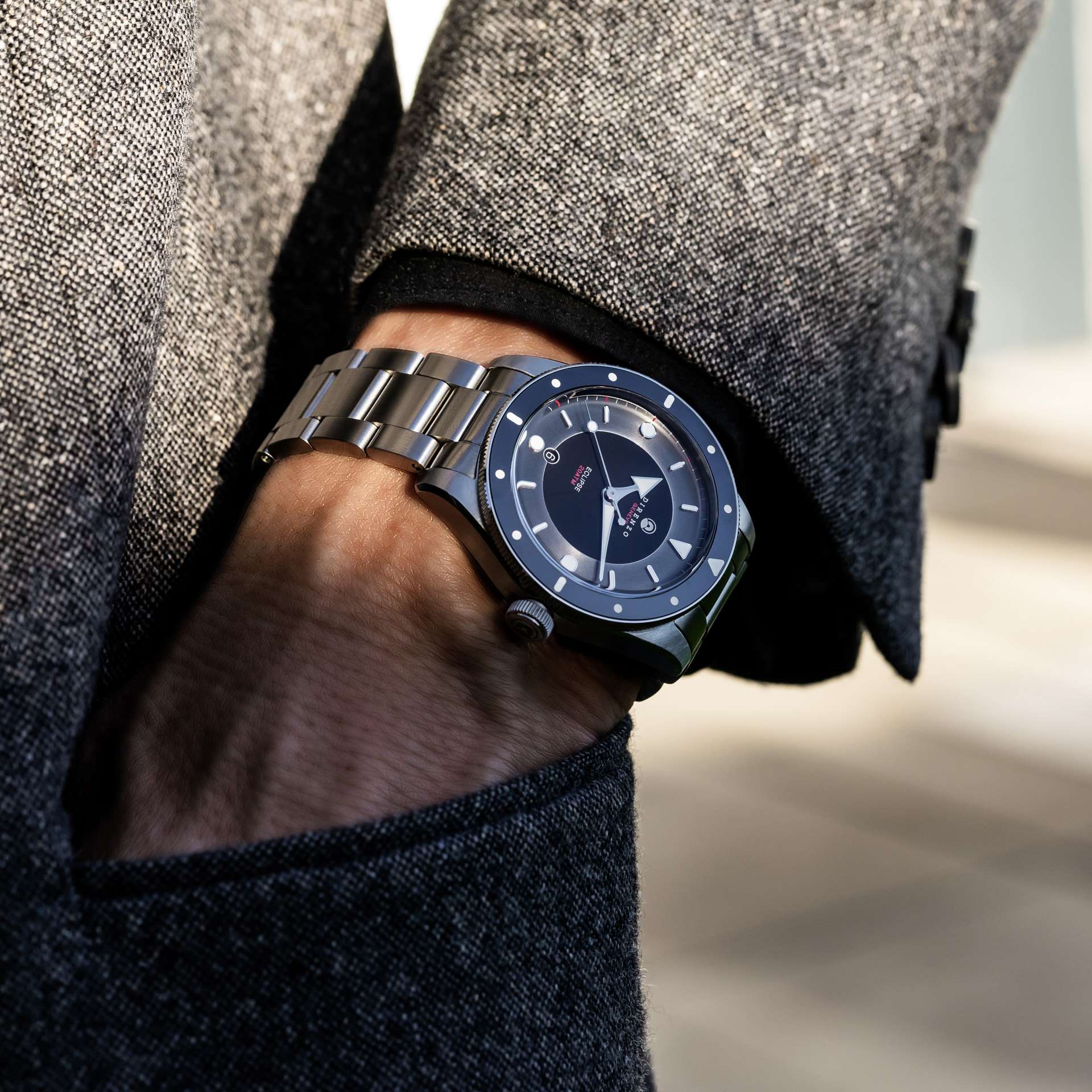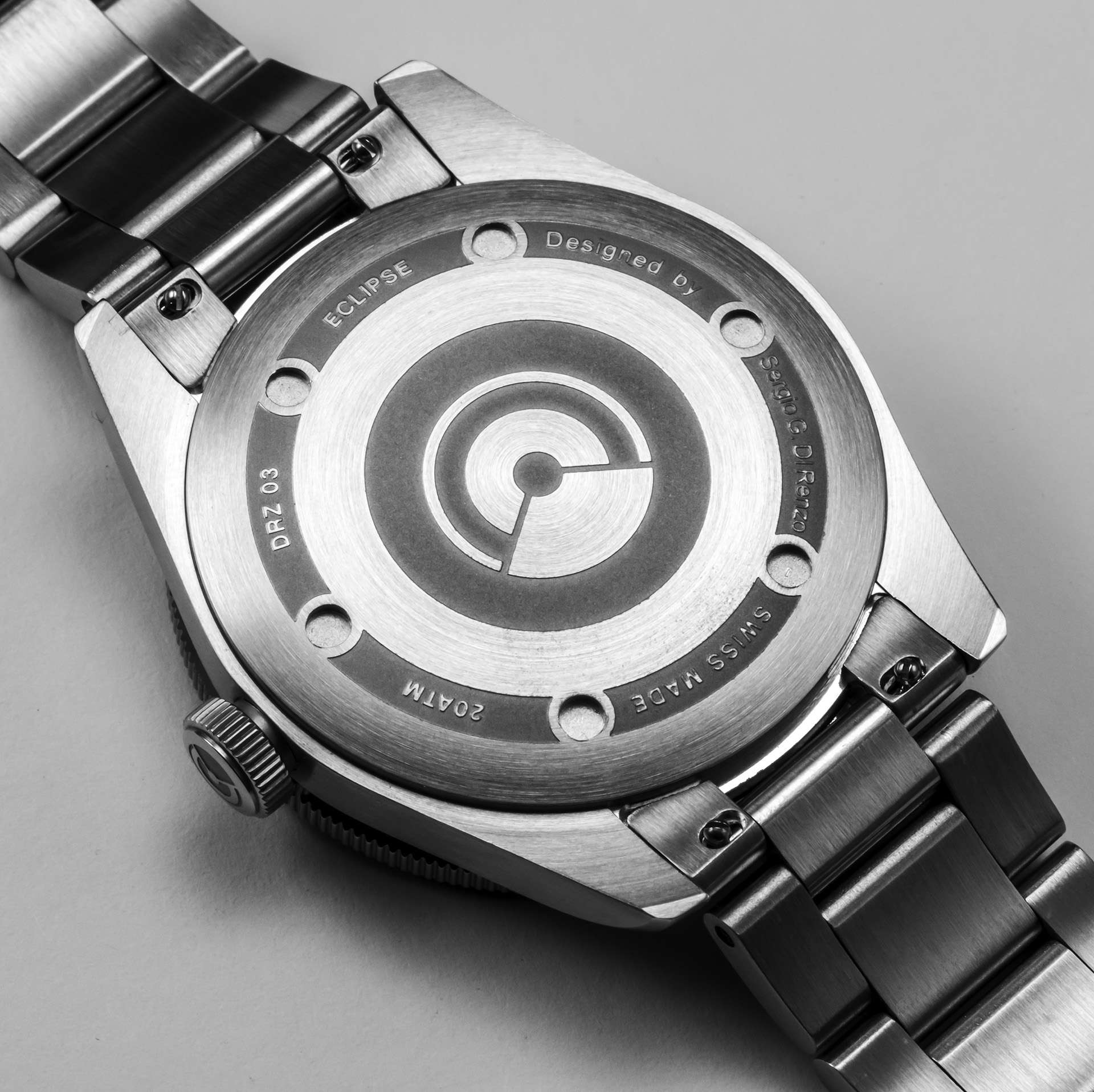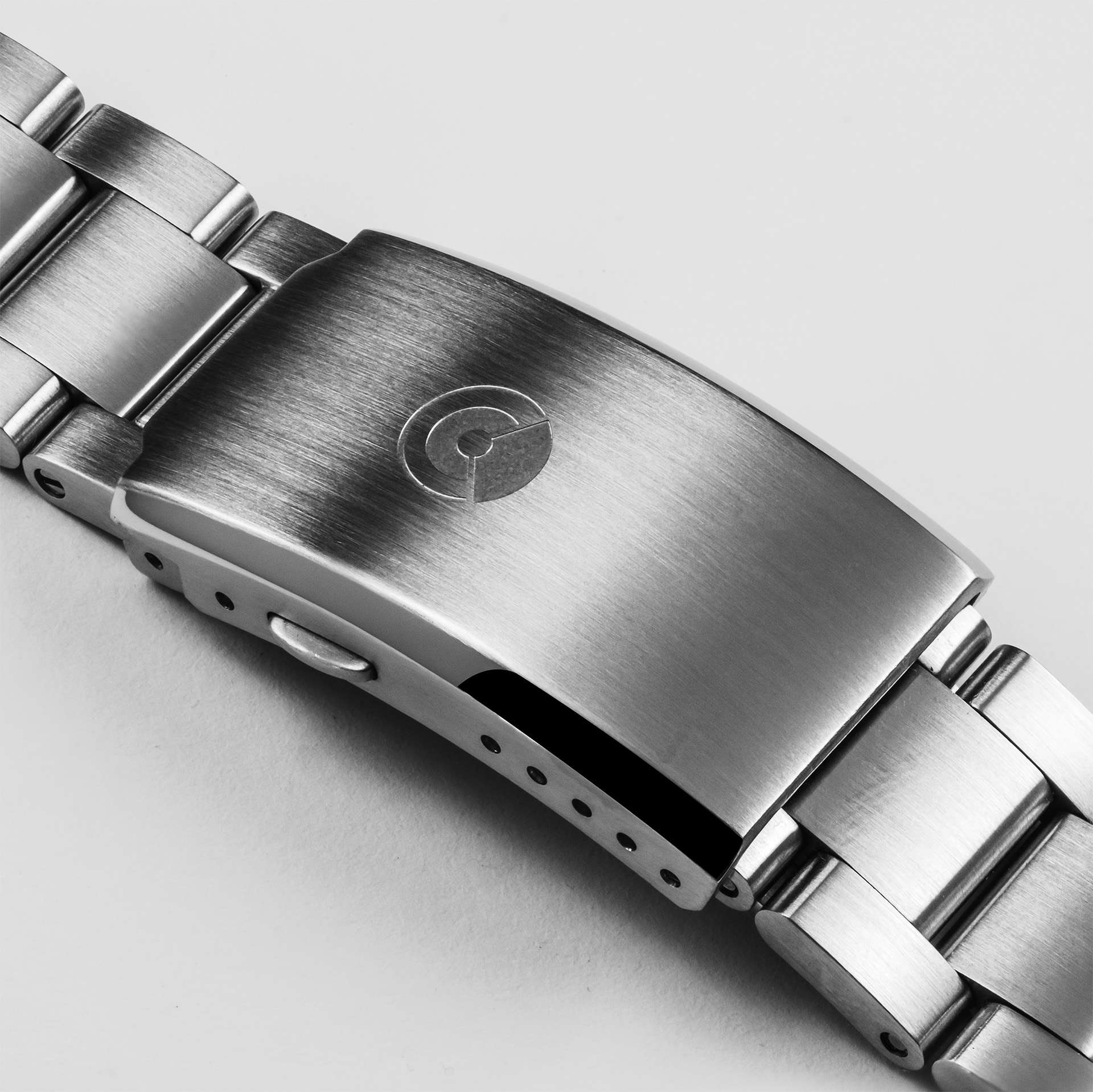



Direnzo DRZ-03 V2 Eclipse Muonionalusta Meteorite Limited Edition (date)
This is the first Direnzo dive watch, a timepiece that pays homage to iconic models from the 60s, while retaining the brand’s DNA. Sergio Direnzo has always been curious about the idea of applying the eclipse effect to the dial of a watch. To do this, the dial is produced in two parts; an inner matt disc and a sunburst fumé outer circle (similar to the DRZ 02). In order to retain the 3D effect while continuing to experiment with new techniques, applied indices are used, thus allowing the watch’s overall height to be reduced by 0.5mm (as opposed to the sandwich construction of the 02), an especially significant element for a dive watch, while at the same time allowing for a greater surface area for the Super-LumiNova paint.
The dial’s bowl shape is reminiscent of the DRZ 02, only applied more subtly to reduce distortion beneath the water. This kind of dial manufacture requires a CNC modelling process, unlike when producing a more conventional and simple flat disc. Direnzo is proud to say that this is probably the first dive watch to make use of this technique and shape. Last but not least, Direnzo maintain the innovative arrangement of the indices of the DRZ 02; a triangle positioned at 12 o’clock and circles at 3, 6 and 9 o’clock, with the option of the date positioned at 6 o’clock (for a perfectly symmetrical design). The rotating bezel draws inspiration from vintage dive watches, such as the Breguet. Removing all type and providing a minimalist layout generates a clear, highly polished piece from a design standpoint, which marries perfectly with the aesthetics of the dial.
This it the limited edition of 80 units worlwide with a complex dial made of a Muonionalusta meteorite.
The dial is made with a piece of the Muonionalusta Meteorite, a fine octahedrite meteorite, classified as type IVA (Of). It impacted northern Scandinavia, west of the border between Sweden and Finland, around one million years BCE. The first discovered fragment was in 1906 near the village of Kitkiöjärvi, with approximately forty pieces known today. Other fragments were found in Norrbotten County's Pajala district, about 140 kilometers north of the Arctic Circle, in a 25-by-15-kilometer area. In 1910, Professor A. G. Högbom described the meteorite, naming it after Muonionalusta on the Muonio River. Professor Nils Göran David Malmqvist studied it in 1948. It is considered to be the oldest known meteorite, estimated to be 4.5653 ± 0.0001 billion years old.
Technical specifications:
|
Case |
316L Steel |
|
Bezel |
Stainless steel (120 unidirectional clicks) |
|
Crystal |
Sapphire with anti-reflective coating |
|
Bracelet |
Oyster type 20-18mm with folding clasp 5 microadjustments, quick release system |
|
Diameter W/0 crown |
40mm |
|
Lug to Lug |
48mm |
|
Height |
12.5mm including sapphire |
|
Water resistance |
20 atm |
|
Movement |
Sellita SW-200-1 Elaboré + Incabloc |
|
Caseback |
Screw down |
|
Weight |
160gr. with bracelet (all links) |
|
Warranty |
24 months |
Choose options







